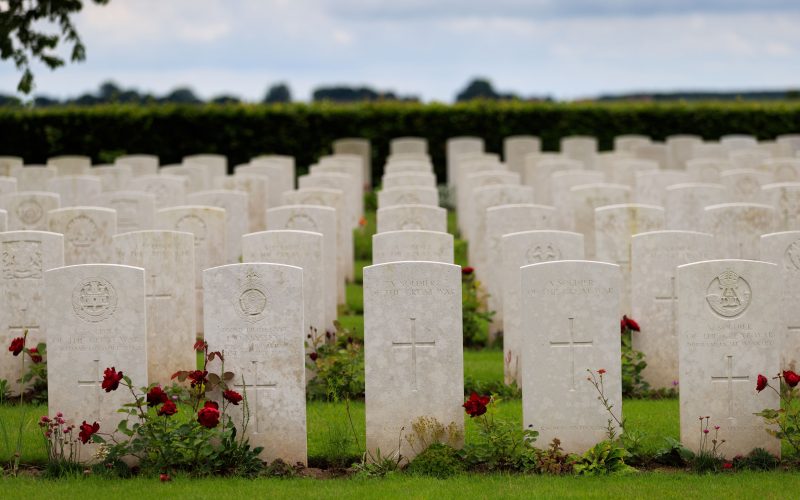Let’s make sure the Somme anniversary has a religious resonance
July 1 marks the 100th anniversary of the first day of the Battle of the Somme, the bloodiest day in the history of the British Army
Jun 28, 2016

By Fr Alexander Lucie-Smith
At the end of this week, on Friday, we shall be marking the 100th anniversary of the first day of the Battle of the Somme. That first day, July 1 1916, was the bloodiest in the history of the British Army, which sustained some 60,000 casualties in a single day. While it may be true that the Somme was not a victory for the Germans, and may even have been a morale-destroying defeat, all that is now forgotten. What we remember is the slaughter, and the myth that the British soldiers were lions led by donkeys.
The British Legion is asking the whole country to mark this anniversary and the Bishops of England and Wales have also called upon their flock to mark this and other centenaries associated with the War. There have been several television programmes recently about, for example, the Battle of Jutland, whose anniversary was at the end of May; there will be doubtless quite a lot of coverage about the Somme, an event that is burned into British consciousness. But it is also important to make sure that this anniversary has a religious element to it.
As Catholics we can make July 1 a day of prayer for peace, and reconciliation among nations, and reflect, with thanksgiving, that another European war is now unthinkable. It is also a good day to pray for the dead, something we do every day that the Holy Mass is offered; but on July 1, this prayer for the dead will have a particular resonance, as we recall all those who died in a cause whose urgency is no longer immediately apparent to us. The dead of the Somme are emblematic of all the lives that are cut short for what once seemed important reasons. Now we mourn their loss and wonder why on earth we let it happen. How much humanity has still to learn!
The First World War was, like all wars, a catalyst of social change. Before it Britain was a religious country; after it, not so much. It has been said that the Church of England did not have a “good war”, but this is a simplistic view, and has been effectively challenged by the excellent Robert Beaken, and his researches into the Home Front, in a lively book on the subject. Nevertheless, one always wonders how the Church of England, and the Catholic Church too, dealt with those who returned from the Front and the traumas they brought with them.
I have met many old people whose fathers took part in the great battles of the Great War, and they usually said the same thing to me: “He never ever spoke about it.” This was, after all, long before the age of counselling for trauma. Perhaps some of them spoke to God in prayer, and, in the silence of their hearts, saw in the suffering of Christ on the Cross a key to understanding the horrors of the Somme and other battles.--Catholic Herald







Total Comments:0